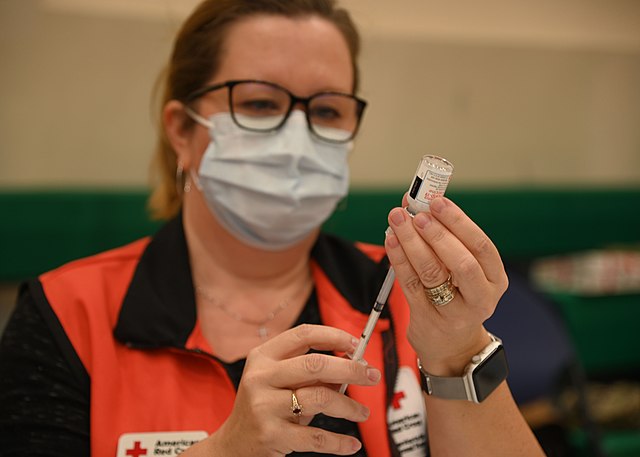Reported by Anwen Sleath and Colm Tan
Cancer charities in Wales say that a drop in vaccinations could lead to more people getting cervical cancer.
The latest UK Health Security Agency (UKHSA) report on the routine human papillomavirus (HPV) vaccine programme for 2021 to 2022, shows a decrease of more than 7%, compared to the previous academic year.
Greg Pycroft, the Policy and Public Affairs Manager at Tenovus Cancer Care, says that the decrease could be explained by “a significant number of teenagers [who] missed their first dose when the HPV vaccine was paused during COVID”.
He says that “cervical cancer is one of those rare cancers where there is a real possibility that we could actually end it. Teenagers getting their HPV vaccine can have a real impact and potentially end cervical cancer”.
The HPV vaccine is designed to protect against the HPV virus, which if left untreated can go on to cause cancer. 99% of all cervical cancer cases are caused by HPV.
However, Deucalion McGregor-Sims, who lost his sister Porsche to cervical cancer in 2020, says it isn’t just the vaccine that will have an impact on cancer rates.
Porsche died at 27, despite getting the vaccine when she was supposed to. Her brother says that if the doctors had properly investigated her symptoms, then his sister “would still be alive today”.
Women typically cannot be tested for the disease until the age of 25. Last year the Welsh Government also extended the intervals between screenings from 3 years to 5. Mr McGregor-Sims says this is “disgraceful” as it took just two years for his sisters results to go from negative to stage 4 cancer.
He believes that campaigns such as ‘Cervical Cancer Prevention Week’ are “pointless” unless the government do more to regularly screen women.

